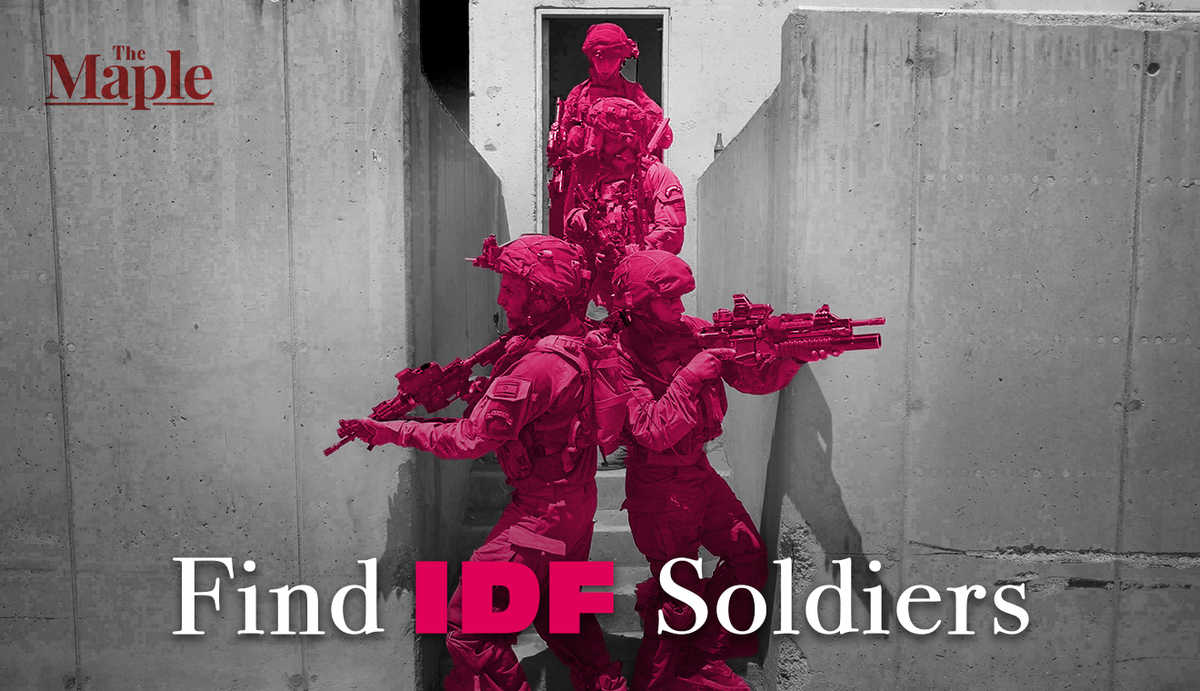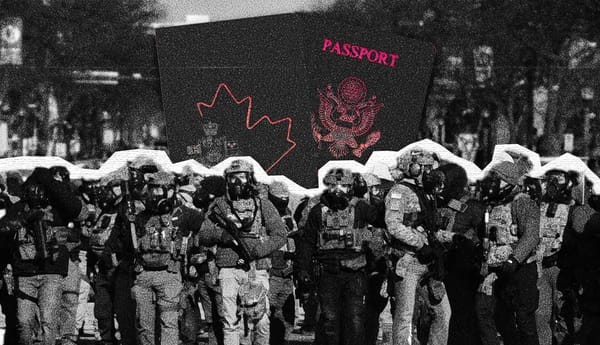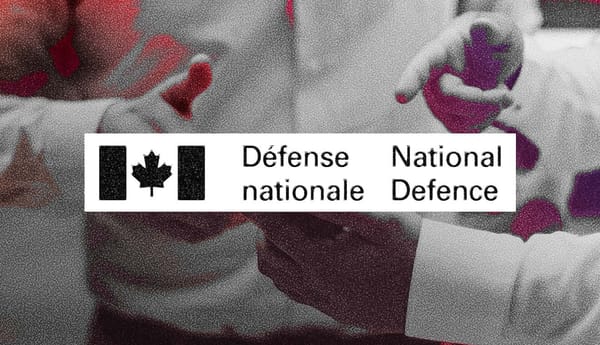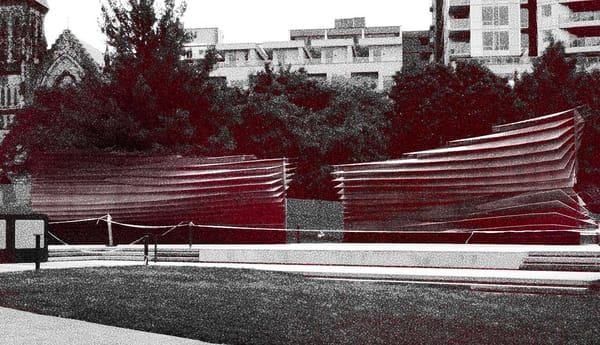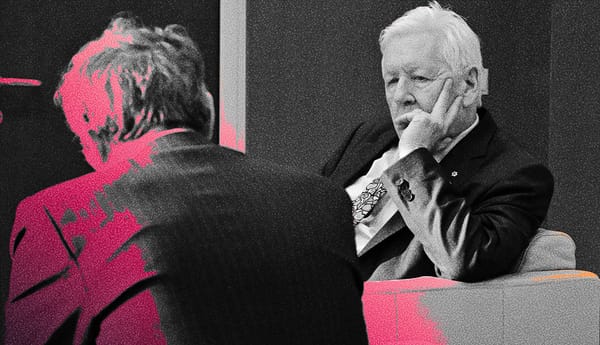In February, I released Find IDF Soldiers, a database containing profiles of Canadians that have joined the Israeli military.
Many of the soldiers attended Jewish schools in Canada, and sometimes attributed their decision to join the Israeli military in part to their time at these institutions. A subsequent review of the schools in question — including curricula, mission statements and activities — revealed many openly support the Israeli military and celebrate students who join it.
To better understand how these schools may help influence students to join the Israeli military, I spoke with 13 former students and the parent of a young student about what they experienced. These students collectively attended 11 Jewish elementary and/or high schools, in six cities (London, Ont., Los Angeles, Montreal, Ottawa, San Francisco, and Toronto), from 1979 to 2024.
Taken together, the former students told me about the “brainwashing,” Zionist “indoctrination” and inculcation of anti-Arab racism they endured during their formative years. They also offered their opinions on the role the schools play in creating future Israeli soldiers.
Here’s what they had to say.
Israel As God
The type of Judaism taught at the schools varied, but they all shared at least one thing. Israel was “omnipresent,” Amir Fleischmann, 31, told me. A version of this claim was made by everyone I spoke with.
Several former students said their schools flew Israeli flags. Tyler Levitan, 38, told me the first thing students would see upon entering his elementary school was a portrait of Israel’s prime minister, which at the time was Benjamin Netanyahu.
Every day of school would start with the Israeli and Canadian national anthems being played. Some of the former students I spoke with said the anthems were treated differently by their peers and teachers. Chelsey Lichtman, 42, said, “We knew the Israeli anthem was more important and more directly connected to us than the Canadian one.” Shoshana Schwebel, 34, stated, “Nobody cared about the Canadian anthem, but the Israeli anthem you had to stand, you had to sing it.”
Israeli national holidays were also marked at the schools.
Schwebel told me that her school always celebrated “‘Israeli Independence Day,’” stating: “They’d bring in bouncy castles and blue and white donuts for everyone. The whole day would just be a day of snow cone machines, popcorn machines, cotton candy machines; it was basically carnival time and everyone would be encouraged to drape themselves in Israeli flags, get their face painted with Israeli flags, and do Israeli-style dancing.”
This experience was shared by other students I spoke with. Jeremy Appel (who writes for The Maple), 34, recounted how the day would be marked: “They brought falafel to us, and told us that it’s Israeli food. And they sat us in rows, like we were on a plane going to Israel. I remember this very euphoric feeling.”
Israel also made its way into Jewish holidays and days of commemoration, according to several of the students. Noam Fleischmann, 28, pointed to International Holocaust Remembrance Day and Hanukkah as specific examples, noting that his school’s framing of the days would include the claim that they illustrated why Israel was needed.
Israel was also incorporated into the school curriculum from the earliest stages, according to Davita Guslits, 34, who recounted learning the alphabet in preschool with Israeli references being used as the examples for letters.
The days at these schools were generally divided into halves: standard, secular curriculum and then Torah study, Hebrew, and Jewish history.
Students were subjected to Israeli propaganda in many of these courses, they told me. Guslits, for example, recalls being repeatedly told a story about European Jews turning barren swamp land in Israel into “beautiful farmland,” saying it was “one of those stories that is older to me than Cinderella.”
Others mentioned that the “land without a people for a people without a land” myth was at the heart of their lessons on Israeli history. Several students also said they were taught to revere the Haganah, a Zionist paramilitary organization in Palestine founded in 1920 that took part in the atrocities committed during the 1948 ethnic cleansing of Palestinians, and sometimes the Irgun, a terrorist offshoot of the Haganah that is best known for its 1946 bombing of the King David Hotel in Jerusalem that killed 91 people.
Mentions of Israel were not limited to Jewish history lessons, however. Appel said, “There was no distinction between being Jewish and supporting Israel. It was an extension of our culture and our heritage.”
Others went further, framing their schools as more concerned with Zionism than Judaism. Schwebel, for example, said the religious aspect of her schools was “really tangential” to their real purpose: “You were sent there if you wanted a Zionist education.”
The parent of a child who was attending a Jewish high school as of Oct. 7, 2023, meanwhile, said, “They will train children in how to be good Zionists,” adding that Israel is “elevated to godliness.”
Fear And Racism
A significant part of the “brainwashing” at the schools, former students said, was being told that Israel was their real home. Amir Fleischmann told me: “‘You’re only safe because the state exists, and the only place you’re really safe is there.’ That’s something they would say explicitly.”
Anna Lippman, 34, meanwhile, recounted a question that was often posed to her and other students in California: “We were always asked by our teachers, ‘Do you consider yourself an American Jew or a Jewish American?’” The correct answer according to the teachers, she said, was “American Jew”: “‘You’re Jewish first and foremost, and you just happen to live in America.’”
Part of the reason the United States and Canada weren’t portrayed as real homes for Jews, the former students said, was that their non-Jewish inhabitants could supposedly turn on them any day, potentially leading to another Holocaust, which, Appel said, led to a “sense of unease and anxiety.”
Olivia Dooley, 35, told me, “We were taught to stay together as Jewish Canadians. We were taught to be insular with each other. We were taught to fear others.” Lichtman, meanwhile, said, “I came out of there and I didn’t know how to interact with anybody other than Jews. It’s such a disservice, honestly, but that’s why people send their kids to those schools: they don’t want them to interact with anybody else.”
Most of the students outside of Montreal also said their classmates were almost exclusively white, and from well-off families, which narrowed down the sort of person they were exposed to even further. A review of the most-recent tuition rates for the schools revealed that they cost as much as nearly $20,000 and $24,000 per year for elementary and high school, respectively.
But not all outsiders were viewed with equal levels of suspicion, with the vast majority of students claiming the schools pushed anti-Arab racism on them.
Schwebel said they were taught that “Arab people are raised with a mandate to kill all the Jews.” Appel said that part of the “indoctrination” at the schools was “instilling this contempt for Arabs.” Louise Smith, 51, said she remembers feeling “that we had to protect ourselves from Arabs.” Jordan Zaitzow, 42, said Jews were portrayed as “good” and Arabs as “bad,” and animosity between them was “built into our DNA.”
Several former students gave specific examples of racism from their teachers.
Lippman recounted: “I had a teacher when I was 10 or so. He was studying to be a rabbi, and he would pose these questions, like: ‘There’s an Arab woman at a checkpoint, and she’s pregnant. You can’t touch her, because there’s no women around, and men can’t touch women. Should you let her in, even though she might be hiding a bomb and blow up the entire hospital? Or should you not let her in?’” Students who chose to let the woman in, Lippman said, were told they had allowed the hospital to be blown up.
Guslits remembered: “[Arabs] were talked about as inhuman, not caring about their children like we were. We were told that they put their children in front of them in the line of fire, that they send their children out as suicide bombers.” She mentioned an incident with a particular teacher in grade eight: “There was one day where she said something to us about all Arabs being evil, and we all pushed back on her, and she left the room crying when we pointed out that it’s racist to say that. And then when she came back into the room and had composed herself, she told us that it had been a test.” Guslits believes the teacher was lying.
Dooley said the anti-Arab racism at the schools was crucial to their purpose: “The story of children coming to support Israel through these educational institutions isn’t complete without the fact that the children are also taught to dehumanize Palestinian people.”
The aforementioned parent, meanwhile, said things became significantly worse after Oct. 7, 2023, with a “complete collapse into this very insular, ethnonationalist, racist, warmongering nastiness.”
Another component of this racism, many of the former students said, was the erasure of Palestinians as a national group. In fact, multiple students told me they didn’t hear the words “Palestine” and “Palestinians” until leaving these schools.
There was also little to no opposition to this ideology within the schools, the former students told me. Appel acknowledged that there were teachers who were “more unhinged about this than others,” but added, “If you’re a teacher who is teaching your students there that Palestinians exist, that their lives are of equal worth to Israelis, and that Israel is occupying them, you wouldn’t last very long.”
Dooley recounted examples of even the simplest questioning of Israel during high school being shut down.
In one case, she recalls her and a group of friends who were part of a social justice club at the school putting up posters that had a “loose anti-war bent.” One of the facts included on the poster was that the U.S. and Israel had refused to sign an agreement to ban cluster munitions. The students got in trouble because the school considered the poster to be “anti-Israel,” Dooley said, adding, “It was hard and confusing to have a fact framed as being anti-Israel.”
In another case, Dooley gave a class presentation that mentioned a Toronto Star article about Israel cutting off drinking water to Gaza. She said, “My teacher cut me off and then someone in the class said that I was a self-hating Jew. And then the teacher was like, ‘Whoa, you need to understand that the Toronto Star is antisemitic.’”
This trend has intensified in recent years, the parent of the younger student told me, saying, “There’s absolutely no space for flourishing as a human being if you, as a student, even slightly differ from the perspective of all out war, flattening Gaza.”
Support The Troops
Support for Israel included the defence and promotion of its military, the students told me. This was reflected in curriculum and school activities, but also occurred in several other unique ways.
Nearly every student I spoke with mentioned that in high school, they had many Israeli teachers referred to as shlichim (emissaries).
The Jewish Agency for Israel, which sometimes works in coordination with the Israeli government and other major Jewish organizations, runs the shlichim program. It says it trains young Israelis on how to be good emissaries for Israel, and adds: “These role models are placed in schools, synagogues, JCCs, camps, universities, youth movements, and Federations all over the globe. There, they engage with Jewish and non-Jewish people about Israel, teach Jewish heritage, and speak about issues of national and religious identity.”
The former students I spoke with said that these shlichim — who they felt typically may not have been qualified to teach — played a crucial role in promoting the Israeli military.
Lippman recalls that the shlichim often had recently finished their military service, and would discuss it openly, including “romantic stories about bonding with your unit in the middle of the desert, making coffee together, praying together,” as well as emphasizing the “important significance the army plays in Israeli society and in the lives of Israelis, and how it’s this key way to give back to your people, to give back to your land, to gain honour within the society.”
The Jewish Agency for Israel did not respond to The Maple’s comment requests.
Another key component most former students mentioned to me was the March of the Living, where thousands of Jewish students from around the world go on a two-week trip consisting of a week in Poland visiting concentration camps and other sites of the Holocaust, and then a week in Israel celebrating the state, culminating in Israeli Independence Day.
Schwebel told me that while the trip wasn’t mandatory, classes would shut down during it and it was seen as “embarrassing” to not go. Describing the trip, Schwebel said, “It was really like, ‘Let’s whip them into a froth, and then they’ll be primed to join the IDF.’”
Explaining how this would occur, Schwebel said, “The Israel part was very, very directly a recruiting breeding ground. It was very clearly using this shock of the Holocaust and death camps and concentration camps — a very straight line, like ‘point a’ to ‘point b,’ where ‘point b’ is joining the army and ‘point a’ is the Holocaust. So it’s like, ‘Okay, now you’ve seen the Holocaust. Now it’s your duty as a Jewish person to join the army and make sure that never happens again.’”
Schwebel provided a specific example from her trip: “I remember one activity that they ran for us when we were in Israel where they had us sort ourselves into, ‘Which type of Jew are you?’” The options put forward were “soldier,” “diaspora philanthropist,” “rabbi” and “pacifist.” Schwebel and her boyfriend at the time chose pacifist, the only ones to do so. Then, she said, “[The soldiers] literally just laughed at us and called us naive treehuggers. The soldiers were like, ‘These naive treehuggers are going to get killed. You guys are going to get killed first because you’re so naive.’”
She added, “The idea was that the top tier that everyone should be aspiring to was ‘soldier,’ and if you weren’t ‘soldier,’ you should be ‘rich philanthropist’ donating to the soldiers.”
The March of the Living’s website links to a 2015 study exploring the impacts the trip has on its participants, and approvingly cites several examples, including that: 86 per cent “assert that it’s very important that their spouse be Jewish”; 91 per cent “intend to give their children a Jewish education” (though just under half attributed that intention to the March); 65 per cent “feel that it’s important to live in a Jewish neighborhood”; and almost 90 per cent “said that the March had made it more likely that they would financially support Jewish causes.” The article adds: “Given the overwhelmingly positive results, it’s fair to say that the March has been and continues to be an enormously successful program in terms of ensuring and enhancing Jewish identity.”
The March of the Living did not respond to The Maple’s comment requests.
Then there was the portrayal of the Israeli military at school, which former students said framed it as an essential part of Judaism whose members were heavily valorized.
Guslits, who told me she had wanted to join the Israeli military as early as elementary school, though she never did so, said, “We were definitely taught to love Israel, to admire the IDF, to want to join it.” Schwebel said, “I do definitely remember being pretty heavily incentivized to join the army straight out of high school.” Dooley said, “It was certainly valorized to move to Israel and fight for the country.” Lippman said, “It was presented as almost a fact of life. Like, if you are Jewish, and if you care about Israel, [joining the Israeli military] is what you do.”
Smith added: “The narrative I’d been raised on was, everybody hated us, and we needed to defend ourselves. And so it does feel like you’re taking one on for the benefit of our culture, and the nation that represents our culture and our religion.”
Amir Fleischmann, meanwhile, knows multiple students who joined the Israeli military after high school. In one case, he said the student, a former friend, had been heavily influenced by the War on Terror culture at the time to want to join an army in general. But the school was “probably a determining factor” in the choice to join the Israeli military in specific, he said: “The sense they give you is that the IDF is really on the front lines. The IDF is dealing with this stuff every day, and the IDF is keeping you as a Jewish person safe in a way that it doesn’t necessarily feel like the Canadian military, which is pretty far removed from day to day life, does.”
Guslits, who also knows several students that joined the Israeli military, said something similar: “I don’t know anyone from my Jewish community who ever joined or thought of joining the Canadian Army.” She added, “They get this idea in their head that joining the IDF is the most noble thing they can do. And then they count down the four years in high school until they can go and do that.”
Amir Fleischmann added, “If you joined the IDF, you were applauded by the school, and at graduation they would specifically call out the people.” Noam Fleischmann, Amir’s brother, added that he remembers the prospective soldiers receiving standing ovations.
Several of the former students recalled that Israeli military apparel, such as t-shirts and hoodies, was trendy in high school.
They also remembered Israeli soldiers on leave or that had recently finished their service coming in to speak to students. Amir Fleischmann recalled that in 2006, a soldier who had recently fought in Lebanon spoke to his elementary school class and showed them a video of his unit bombing what was described as a “guerrilla,” which at least one student mistakenly understood to be a “gorilla.”
The former students added, however, that while schools play a significant role in Jewish Canadian youth joining the Israeli military, they aren’t the only factor.
Schwebel said, “Every Jewish institution that I was part of did this.” Appel added, “The Jewish day schools are part of a broader constellation of Jewish institutions that support what Israel is doing, and normalize it, and normalize feeling this really personal attachment to it.” He pointed to Jewish summer camps as another key component, as many others did.
Dooley, meanwhile, told me, “The Zionist education system is one big piece of a broader isolationist propaganda mode of ensuring that children end up as Zionists [...] They don’t have a point of entry into the real world until they’re 18 or something, at which point it’s so ingrained in people.”
Noam Fleischmann added: “It’s institutional Judaism. That’s what it is. This entire thing is all just built to keep Zionism alive, and this sort of Spartan military cult alive.”
After Graduation
The former students I spoke with now identify as anti-Zionists, and have come to oppose much of what they were taught at their schools. As a result, they often find themselves isolated from the vast majority of former classmates, who failed to break out of what several referred to as “the bubble.” I asked how they feel about these sorts of former classmates, and their responses included anger, embarrassment, sympathy, and sadness.
One former student told me: “The thing that I think about most is actually how traumatized these individuals are, how much they’ve absorbed and not processed the inter-generational trauma that makes it so that this is their behaviour in the face of a televised genocide.” But they added, “If you taught an entire generation of people about a genocide and those people can’t recognize another one, literally, what the fuck is hope for anything? [...] I look at my own family — Holocaust survivor grandparents, my mom, who’s their descendant — and all of them are genocidal and they can’t see it.”
Guslits said, “What really horrifies me is that if I know people who have served in the IDF, then almost certainly I know people who have terrorized Palestinian homes in the West Bank.” Amir Fleischmann told me, “I don’t have a lot of respect for them, to be honest. These people are not in my life at this point.” Dooley said, “We all have the ability to read books. It was on them a long time ago.” She added, though, that she gives a bit more leeway to teens than those her age.
Lichtman said, “The project of introducing Israel with no critique at all from like three, four years old, that’ll do it for most people, you know what I mean? You’re literally brainwashed from a young age.” She added that even when students graduate, “It’s just so much easier to stay a Zionist and stay in this very incredibly privileged vacuum of a community that there’s no real incentive for people to leave that.”
Schwebel told me she has mixed feelings: “If they’re Zionist, and they believe in that and they promote it, they do bear responsibility the same way anyone else would.” But, she added, she’s aware of the “decades-long, extremely well-funded project of propaganda that has gone into insulating these people from other realities.”
Appel, meanwhile, told me that the consequences of students attending these schools end up manifesting later on in life in shared environments where they’re exposed to non-Jews: “You see this a lot with the discourse about antisemitism on campus and Jews feeling safe on campus, and what does it come down to? It’s hearing perspectives that were withheld from you growing up and not being able to reconcile that with what you were told was the truth, and that we’re inherently victims.”
Levitan, who attended Jewish elementary school and then public high school, recalled something similar, stating: “I remember in grade nine, my math teacher didn’t grade me in the way that I thought I should have been graded, as in my math skills were not as good as I thought they were. And I attributed that to her being antisemitic. This is sick thinking, right?”
The former students I spoke with who are now parents told me they’d never send their children to these schools. The parent of the younger student said they eventually pulled their child out, and wouldn’t have sent them in the first place had they known what was to come.
When asked about whether the schools could be reformed in some way, most of the former students told me they didn’t think so. The Zionism, they said, was the point, and so stripping Zionism from the schools would not only go against what the vast majority of parents who send their kids there want, but perhaps more importantly what attracts those who help fund the schools.
The former students, nearly all of whom have been out of the schools for at least a decade, now have considerably varying relations with Judaism.
Some told me their activism is not only compatible with Judaism but motivated by it. Zaitzow, for example, said, “It’s because of my Judaism that I do my activism, for sure.”
Lippman, who described a more religious school experience than others, said, “What has saved Judaism for me is all the sort of non-Zionist stuff that I learned in school. I learned about Jewish values, I learned about how and why Jews care about social justice, why they care about reclaiming the world or repairing the world. And so I think since breaking with Zionism, my Judaism has really become more of an ethic, a way of living that isn’t centred on a place or a nation, but is centred on living the values of Judaism and really enacting them in my everyday life.”
Another former student told me: “My Judaism, my relationship with my ancestors and my own spirituality and relationship with divinity fuels my resistance work [...] I don’t know how you live through this kind of fascism without any connection to something higher.”
Others, however, feel differently.
Schwebel said, “I feel like if you had asked me [about my relationship with Judaism] like five years ago, I would have responded that I do feel like there is a part of Judaism that was not really taught at my high school that has this deep tradition of anti-fascism and community and solidarity with other oppressed groups, with other minority groups. But now I’m not sure if I still agree with that. I think that was a very optimistic feeling, and now I’m back to feeling mostly like I’m not that interested in saving the project of Judaism anymore.”
Lichtman told me, “Mainstream Judaism is lost. It’s completely lost. And Zionism, in my opinion, Zionism can have it.”
She added, “The Stars of David being branded onto Palestinians’ faces and the genocide in the name of Jewish safety really has just … I can’t. There’s nothing there for me anymore. Absolutely nothing.”
Check out Find IDF Soldiers and its accompanying analysis article to learn more about Canadians that have joined the Israeli military, including what they’ve had to say about Jewish schools.
